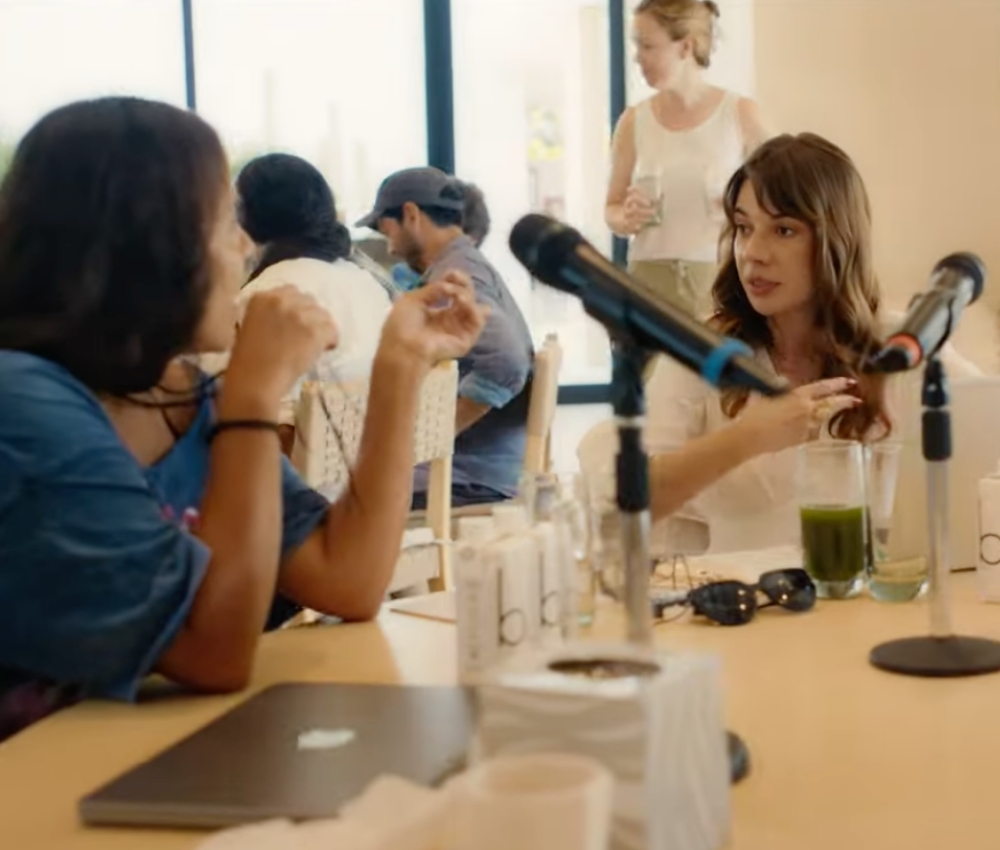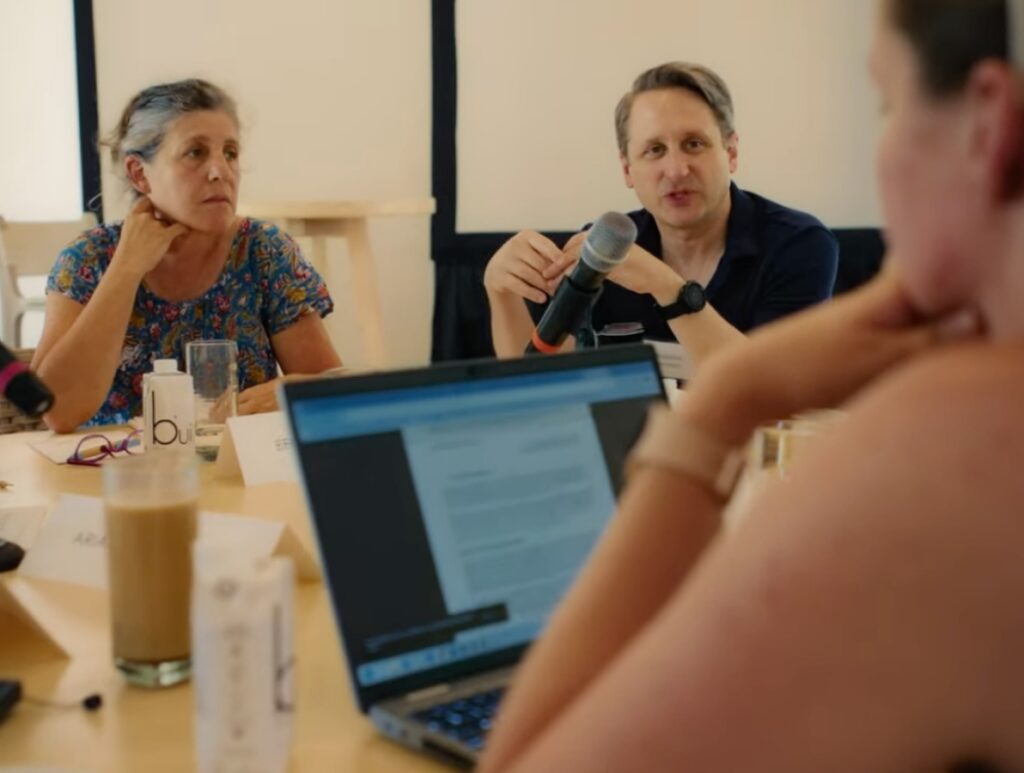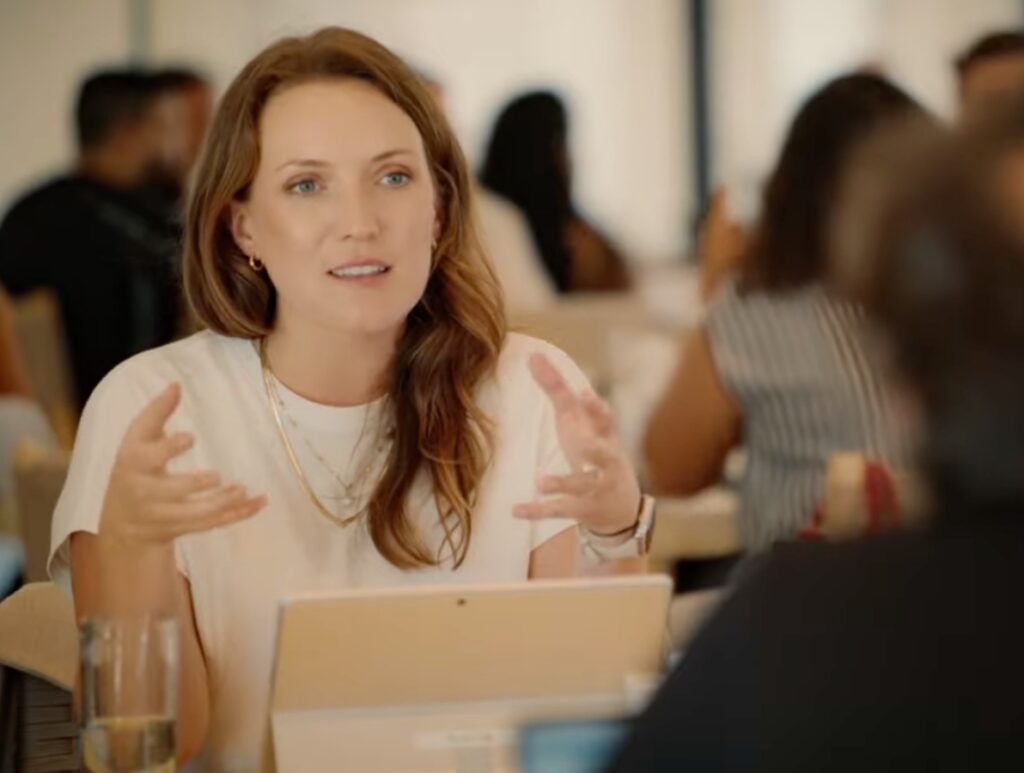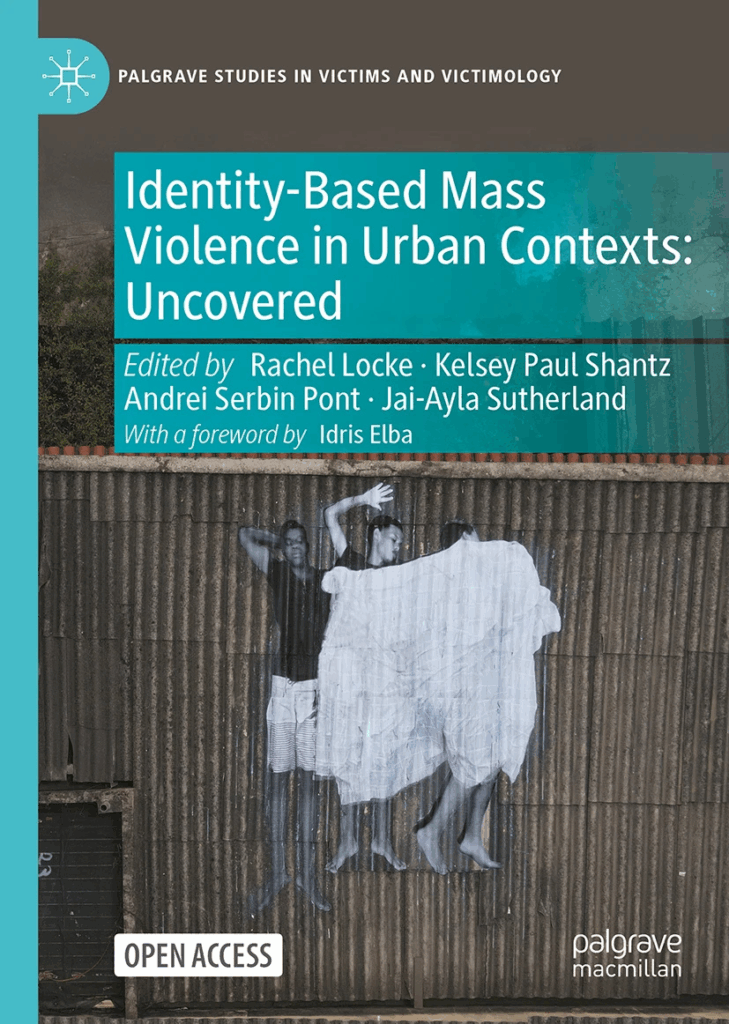Community
Contributors and interdisciplinary collaborations

How We Came Together
The edited volume began by identifying a core problem: violence is increasing globally, and existing models of understanding and preventing violence are falling short. The international system that prevailed after the end of World War II is being hollowed out, conflict is increasing worldwide, and individuals continue to experience exceptionally high levels of violence in places considered at peace.
The core of our mission—“our” being the editors, the team that pulled this volume together, and, most importantly, the contributors themselves—has been to consider how we might specifically bring the fields of atrocity prevention, urban-violence prevention, and peacebuilding together by exploring the alignments and overlaps among these disciplines.
Our strategy was rooted in identifying common cause, connecting structural dimensions of violence with acute violence and its immediate responses, and prioritizing the voices of those directly impacted.
This volume has built a community. One that crosses borders, ages, languages, nationalities, genders, experiences, and disciplines. The contributors met in person three times—in San Diego, Barcelona, and Mexico—and convened virtually on countless other occasions. Building this work together has been instrumental in its unique outcome.
The contributors, editors, and reference group members who created this volume have learned from, critiqued, cried and laughed with, and supported one another over the past several years. Together, we have seen wars start and others end. We have held closely people forced to flee their homes, and poured hope into those with the opportunity to return. We have held one another’s trauma and celebrated one another’s joy. It has been an incredible privilege to work in such a collaborative environment.


Contributors
Please meet the contributors to this volume below. You are welcome to find them on social media and engage with their related recent publications. If you would like to be in touch with anyone, please reach out to the editors, who will be happy to connect you.
Ammar Azzouz is a research fellow at the School of Geography and the Environment, University of Oxford. His research has appeared in the New York Times, Conversation, New Statesman, New Lines Magazine, Middle East Eye, and peer-reviewed journals. He studied architecture in his home country of Syria, and he is the author of Domicide: Architecture, War and the Destruction of Home in Syria (London: Bloomsbury, 2023).
RELATED WORK
- See academic profile
Alejandra Medina Barragán is a graphic designer who has been honored several times for her work. In each of her projects, she seeks to capture the essence of the narrative and translate it into a visual language that inspires, moves, and transcends borders.
Mariana Medina Barragán is a human rights lawyer and specialist in public policies and gender justice. Her work includes serving as a researcher and adviser to civil society organizations, international cooperation agencies, and state entities. She has a law degree and MA in constitutional rights from the National University of Colombia and a postgraduate degree in human rights from the University of Chile.
Michal Braier is an architect and urban planner specializing in urban political geography. She holds a PhD from Ben Gurion University of the Negev. Braier is head of research and publications at Bimkom—Planning and Human Rights. She is also a teaching fellow at the Urban and Regional Planning Institute at Hebrew University of Jerusalem.
Friederike Bubenzer is an independent South African peacebuilding practitioner and holds an MPhil degree in development studies and social transformation from the University of Cape Town. She is coeditor with Pumla Gobodo Madikizela and Marietjie Oelofsen of These Are the Things That Sit With Us (Johannesburg: Jacana, 2019) and coeditor with Orly Stern of Hope, Pain and Patience: The Lives of Women in South Sudan (Johannesburg: Jacana, 2011).
Efrat Cohen Bar is an architect and urban designer. She is co-executive director of the Israeli nongovernmental organization Bimkom—Planning and Human Rights, where she manages the East Jerusalem and the Urban Renewal Departments and has served as Deputy Director of Planning.
RELATED WORK
ElsaMarie D’Silva is the founder of Red Dot Foundation (India) and President of Red Dot Foundation Global (USA). She created the platform Safecity, which crowdsources personal experiences of sexual violence and abuse. Her work has been recognized by the UN secretary-general, UN Alliance of Civilizations, German Federal Foreign Office, and others.
RELATED WORK
Shukria Dellawar is founder and President of Lotus Anchor, a consulting firm specializing in conflict prevention and peacebuilding. She holds a BA and an MS in conflict analysis and resolution from George Mason University’s Carter School for Peace. She has testified before Congress and was instrumental in the passage of the Elie Wiesel Genocide and Atrocities Prevention Act and the Global Fragility Act.
Prince Charles Dickson is a peace-policy analyst based in Nigeria. He holds a PhD in psychology from Georgetown University and has decades of expertise in media, public policy, and development practice. In addition to his work in advocacy, peacebuilding, and psychology, he has been a reporter, editor, and syndicated columnist in Nigeria.
Andy Fearn is Co-Executive Director and head of learning and outreach for Protection Approaches. He holds an MA in human rights from Kingston University London and works to build community resilience and help individuals develop the practical skills, knowledge, and networks to confront prejudice and hate.
RELATED WORK
Kate Ferguson is Co-Executive Director of Protection Approaches. Her education includes a master’s degree from Oxford in Russian and East European studies and a PhD in the study of mass atrocities from the University of East Anglia. She is the author of Architectures of Violence: The Command Structures of Mass Atrocities from Yugoslavia to Serbia (Oxford: Oxford University Press, 2020). She serves on the Board of Trustees of the Holocaust Memorial Day Trust.
Natalia Garcia Cervantes is a research professor at Tecnologico de Monterrey and holds a PhD from the University of Manchester. Her ethnographic work draws on adapting ecological frameworks to explore perceptions of violence and insecurity in Mexico in order to identify risk factors at differing social levels.
RELATED WORK
- Garcia-Cervantes, N. (2025). Urban violence as the politics of space in Monterrey, Mexico. International Development Planning Review, 47(2), 199-221.
- Leos, C. V., & García-Cervates, N. (2024). Percepción de seguridad, género y entornos del transporte: caso estación de metro Cuauhtémoc, Monterrey. Revista de Urbanismo, (51), 1-22.
- Garcia-Cervantes, N. (2021). Violence and insecurity in urban space: an analytical approach based on the ecological framework for violence. Revista Geográfica de América Central, (66), 25-58.
- García- Cervantes, N. (2019). Using participatory visual methods in the study of violence perceptions and urban space in Mexico. International Journal of Conflict and Violence (IJCV), 13, a662-a662.
Jocelyn Getgen Kestenbaum is professor of law at the Benjamin N. Cardozo School of Law, where she directs the Benjamin B. Ferencz Human Rights and Atrocity Prevention Clinic and the Cardozo Law Institute in Holocaust and Human Rights. She holds a JD from Cornell Law School and an MPH from the Johns Hopkins Bloomberg School of Public Health.
Antônio Jacinto Sampaio leads a research team on cities and illicit economies at the Global Initiative Against Transnational Organized Crime. He has worked at the International Institute for Strategic Studies and has advised NATO on urban warfare. He has published in peer-reviewed journals and news outlets on organized crime, urban conflicts, and Brazilian politics.
RELATED WORK
Luz Adriana López Medina is a nurse and former child victim of recruitment by the Colombian FARC-EP guerrilla group. Through her work and activism, she continues to search for children who are still considered missing after being recruited by armed groups.
Felipe Luna Espinosa is an independent photographer, reporter, and editor based in Mexico. His work has been featured in Bloomberg, El País, the Los Angeles Times, and the New York Times. He has worked with nongovernmental organizations, designers, videographers, and visual artists. He is an active member of Diversify Photo and Frontline Freelance Mexico.
Ariana Markowitz is a freelance researcher focused on urban violence and community-centered practice. She is especially interested in exploring and evidencing forms of violence that are hard to see and harder to count. She holds a PhD in development planning from University College London and has written local government policy in London and San Salvador, El Salvador.
RELATED WORK
- Urban Atrocities: Exploring Identity-Based Mass Violence in Cities
- “#5 Researching, Risk, and Wellbeing – Practising ethics guides to built environment research” (PDF)
- “Stepping Out of Line: Moving through Vulnerability with Children in Transition”
Juan Martínez D’Aubuisson is an anthropologist and journalist from El Salvador. His work has appeared in Gatopardo, El Faro, and the Washington Post. He has researched gangs and gang violence extensively in El Salvador since 2008.
Rose Mbone is a peace and justice advocate in Nairobi. She was among the first cohort of the Inspiring African Women Leaders in Peace and Security Program at the Kofi Annan International Peacekeeping Training Center in Ghana. She is currently coordinating trauma-awareness and resilience campaigns in Nairobi with support from the Daima Initiatives for Peace and Development.
Sara Meléndez has a degree in graphic design from the Universidad Tecnologica de El Salvador. She also studied in Madrid at the Istituto Europeo di Design, has collaborated on projects with the Studio GrandeGraphix and the Studio Franchise, and manages the graphic direction and communication of Melro y Asociados S.A. de C.V.
Gary Milante is the lead specialist on risk monitoring in the World Bank’s Fragility, Conflict and Violence Group. Before that he founded N.Path and was Director of Studies for Peace and Development at the Stockholm International Peace Research Institute. He has a PhD in economics from the University of California at Irvine and has advised the Organization for Economic Cooperation and Development, the International Monetary Fund, UN agencies, and other organizations, as well as the governments of developing and developed countries.
Areli Palomo Contreras is an award-winning ethnographic journalist who has produced investigative chronicles focusing on violence associated with Central American migration. Her work has appeared in Somos el Medio, Contra Corriente, Avispa, and other outlets across Latin America.
RELATED WORK
José Luis Pardo Veiras is a freelance journalist whose work has appeared in the New York Times, El País, and other publications. He is the author of Narco América: From the Andes to Manhattan, 55,000 Kilometers on the Trail of Cocaine (Barcelona: Tusquets, 2015), and coauthor of The 12 Poorest Mexicans (Madrid: Planeta, 2016). His awards include Spain’s 2014 Ortega y Gasset Prize and 2013 National Journalism Prize.
Alberto Pereira is a Brazilian communicator and visual artist. His works have been presented in solo and collective exhibitions, digital and urban art festivals, and contemporary art salons in Argentina, Brazil, Egypt, France, Italy, and Lebanon. In 2016, he created the Lambes Brasil network, focused on publicizing, valuing, and producing events and opportunities for street artists who create posters across the country.
Alhakam Shaar is a linguist, sociologist and anthropologist. He leads The Aleppo Project and is a co-founding member of Liqa al-Umran (The Urbanism Gathering) platform. His work spans heritage preservation, post-conflict reconstruction, and migration studies. He has contributed to projects such as preserving Aleppian intangible heritage (with MEAP, UCLA), mapping Syrian diaspora organizations in Germany (SVR, Berlin), and digitizing the Comparative Encyclopedia of Aleppo (Al-Adiyat Archaeological Society, Aleppo).
RELATED WORK
- The Aleppo Project
- Liqa al-Umran (Urbanism Gathering)
Barbara Sherrod recently served as the Director of Programs for Restorative Response Baltimore. She received her EdD from Morgan State University, studying urban educational leadership. Her writing has been featured in Colorizing Restorative Justice: Voicing Our Realities (Saint Paul, MN: Living Justice Press, 2020) and in the online publication Juvenile Justice Information Exchange.
RELATED WORK
Alexander Turner is a freelance photographer and journalist working in Bristol, UK. His clients include the Guardian, the New York Times, the BBC, and many other outlets.
Kerry Whigham is Assistant Professor of Genocide and Mass Atrocity Prevention at Binghamton University and Director of Research and Online Education at the Auschwitz Institute for the Prevention of Genocide and Mass Atrocities. With a PhD in performative studies from New York University, specializing in postgenocidal studies, he is the author of Resonant Violence: Affect, Memory, and Activism in Post-Genocide Societies (New Brunswick, NJ: Rutgers University Press, 2022) and has published a broad range of peer-reviewed articles.
Serena Wiebe has, at just 19 years old, established herself as a successful sports coach for the charity Empire Fighting Chance. Of Jamaican heritage, she was raised in the racially and economically fractured city of Bristol, UK, where she confronts the many structural and social challenges of urban violence.
Editors
Please meet the editors of this volume below. We are deeply grateful for the opportunity to work with and learn from one another, as well as from every contributor to this project.
Rachel Locke is co-founder and Principal of Peace in Our Cities, a network of cities around the world working to prevent and reduce serious violence through evidence-informed and rights-based strategies. She previously directed the Violence, Inequality and Power Lab (VIP Lab) at the Kroc Institute for Peace and Justice, University of San Diego. She has also been Head of Research for violence prevention at New York University’s Center on International Cooperation and Senior Policy Adviser with the US Agency for International Development (USAID), where she developed agency-wide policies on issues concerning conflict, violence, and fragility. She holds an MA in international affairs from Columbia University and has published widely on violence prevention, humanitarian aid, conflict, and transnational organized crime.
Kelsey Paul Shantz is Program Officer for mass violence and atrocities at the Stanley Center for Peace and Security and a co-facilitating partner of the Peace in Our Cities Network. At the Stanley Center, she works to prevent identity-based violence by developing evidence and global networks of policymakers, researchers, and practitioners. She primarily focuses on city-level approaches to address structural violence, including investigating how identity is weaponized through power and systems. Her work—both personal and professional—has informed city-level strategies for violence reduction and community resilience. Her prior research has spanned topics of defense and security, global economic governance, and microfinance for think tanks and research institutions in Canada, the United States, and the Netherlands. Paul Shantz has an MA in international relations from the Maxwell School of Citizenship and Public Affairs at Syracuse University and an MPP from the Hertie School of Governance in Berlin, Germany. She also has a BA in international studies from the University of Evansville.
Andrei Serbin Pont is the President of the Coordinadora Regional de Investigaciones Económicas y Sociales (Regional Coordinator for Social and Economic Research) known as CRIES. He is also CEO of InnovAcción Hub by Pensamiento Propio, Regional Representative for the Global Partnership for the Prevention of Armed Conflict (GPPAC), Adjunct Director of Pensamiento Propio, a Consulting Member of the Argentine Council for International Relations, and Senior Fellow at the Jack D. Gordon Institute for Public Policy. He holds a PhD in international relations from Universidad Complutense de Madrid, a master’s degree in international relations from the San Tiago Dantas Program in Sao Paulo, Brazil, and a BA in liberal arts with a specialization in public policy from Universidad Nacional de San Martín—Buenos Aires.
Jai-Ayla Sutherland is Program Officer for mass violence and atrocities at the Stanley Center for Peace and Security, where she supports efforts to prevent structural and acute violence by working with representatives from government and civil society. Her work focuses predominantly on the role of cities, locally and internationally, in implementing evidence-based prevention strategies. Her team is part of the secretariat of the Peace in Our Cities Network, a global network of cities and organizations working together to reduce violence at the municipal level. She has worked in North and South America, Europe, Africa, and Asia, and has experience conducting research on the roots of violent conflict in Africa and the Middle East and analyzing the structural needs and policy approaches to preventing mass atrocities worldwide. She has an MA in international security from the Josef Korbel School of International Studies at the University of Denver and a BA in international relations from the University of Southern California.
An Invitation to Join the Work
This volume promises to change the way you think about identity, violence, and space. It lays the foundation for the ongoing development of identity-based mass violence (IBMV) as a distinct yet interconnected field of study that breaks away from traditional siloes in academic research, policy, funding, and practice. The volume invites scholars, practitioners, and policymakers to engage and is designed to stimulate cross-disciplinary dialogue. We hope that through collaboration and inclusion, new pathways can be forged to prevent mass violence.
Researchers & Academics
The emerging IBMV framework is an invitation to faculty, independent scholars, and graduate students to explore new areas of research opened up by the edited volume. The book can be added to syllabi and course materials and discussed in both public and private forums, such as book clubs and discussions.
Policymakers & Policy Influencers
Applying an IBMV lens to the challenge of violence prevention generates novel policy ramifications. Decisionmakers and influencers can benefit from working across disciplines, exploring the recommendations of the edited volume, and engaging cities to reduce and prevent violence.
Civil Society Practitioners
The edited volume opens the door for civil society practitioners of all types to harness local knowledge and connect with individuals and communities from different areas of practice and contexts.
Philanthropists & Funders
The IBMV framework broadens the aperture for violence prevention. Philanthropy can be more effective by bridging across siloes. Engaging and supporting city-based actors can unlock new pathways for peace.
Journalists & Editors
Telling the stories of IBMV in cities can inform audiences in new ways and help shift the discourse, policy, and practice of violence prevention.
Connect with Us
This volume serves as an invitation for a wide variety of individuals and institutions to engage deeply and meaningfully in cross-sectoral work to prevent and address identity-based mass violence in communities. We hope that this volume reaches as many people as possible. We encourage anyone with an idea for their own work or a collaboration with the editors or contributors to reach out to one of us by email:
Co-Organizers
The editors were deeply supported in this work by their home institutions, listed below. Working across four time zones and two countries, the editors met regularly for multiple years and collaborated closely with contributors who live and work across the globe. We also experienced personal and professional changes. Andrei Serbin Pont became the president of CRIES, as well as a regular contributing expert to video podcasts and news outlets; Rachel Locke is now Principal of Peace in Our Cities, a global, membership-driven network of city and community leaders committed to addressing and preventing violence. As such, the PiOC network is now a core implementing partner for the IBMV work moving forward.
- CRIES
- Peace in Our Cities
- Stanley Center for Peace and Security
- Violence, Inequality and Power Lab (Kroc School of Peace Studies at the University of San Diego)

Identity-Based Mass Violence in Urban Contexts: Uncovered
The edited volume’s commitment to an expansive, inclusive approach to understanding and addressing identity-based mass violence (IBMV) makes it a significant contribution that spans multiple disciplines and aspires to reduce violence and promote peace in urban settings worldwide.

